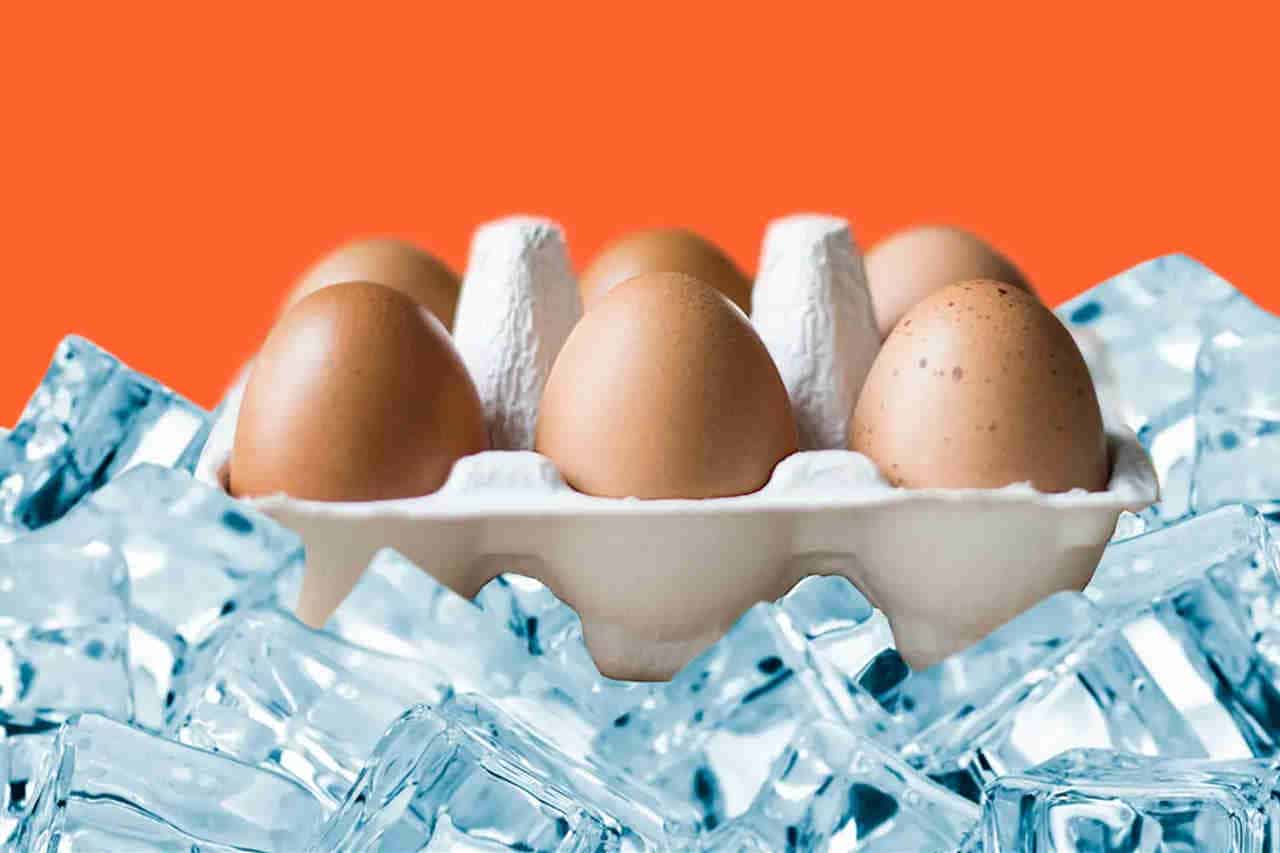Ever since humans discovered the preservative powers of ice, freezing has been our default method of keeping food fresh for a long time. It is one of the primary reasons why you have a refrigerator in your house. We use refrigeration for almost everything, including meat, veggies, and dairy, begging the question, can you freeze eggs?
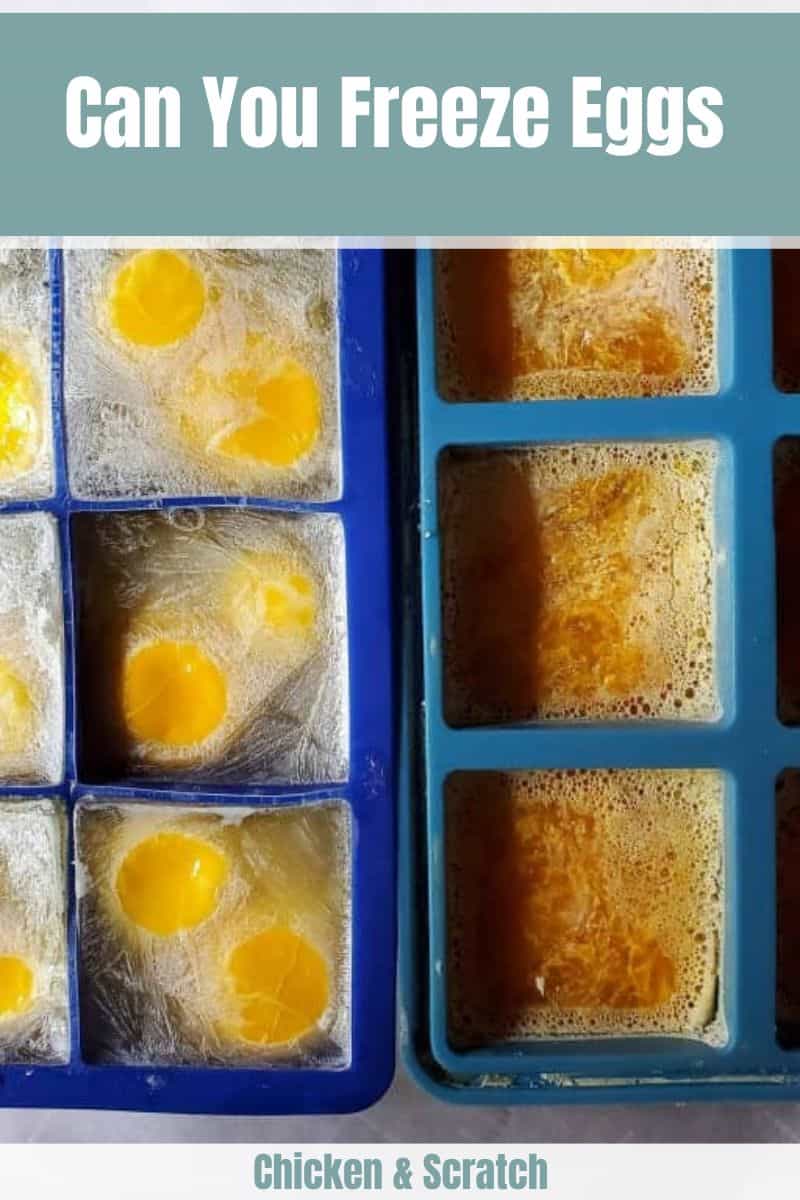
Well, that is exactly what we are about to find out. So, let’s jump in!
The Science of Eggs
But before we get into the good stuff, we need to understand the structure of the egg and its inner workings.
The Composition of the Chicken Egg
The chicken egg is made of several distinct parts, each serving a specific function. Below are the main components of the chicken egg:
- Egg Yolk: It is the yellow or orange core of the egg. It provides the necessary nutrients for the growth of the embryo. I’m talking about proteins, vitamins, fats, and minerals.
- Egg White (or albumen): It is a clear and viscous liquid in which the yolk is suspended. It, too, does contain nutrients necessary for the embryo’s growth, including water, minerals, and proteins. The primary job of the egg white is to cushion the growing embryo.
- Shell: This is the hard yet brittle protective cover of the egg. It acts as a physical barrier between the egg and environmental germs.
- Membranes: Covering the shell are two protective membranes; the inner and outer membranes. These layers work in tandem to provide an additional lay of defense against microbial attacks. Yes, the egg has natural defenses against spoilage.
The Importance of Proper Egg Storage
Without any assistance, the chicken egg can keep itself fresh; remember, it takes 21 days for a chicken egg to hatch. Going the extra mile with proper storage techniques can help extend the shelf life of the egg.
Below are other reasons why you should consider proper egg storage:
- Prevent bacterial contamination of the egg
- Reduce the risk of food poisoning that may result from eating contaminated eggs
- Preserve egg quality and flavor
- Prevent the cracking of the eggs
- Prevent egg spoilage
It is recommended that you keep your eggs in a cool and dry place. And what is cooler and drier than the bowels of a freezer?
Can You Freeze Chicken Eggs?
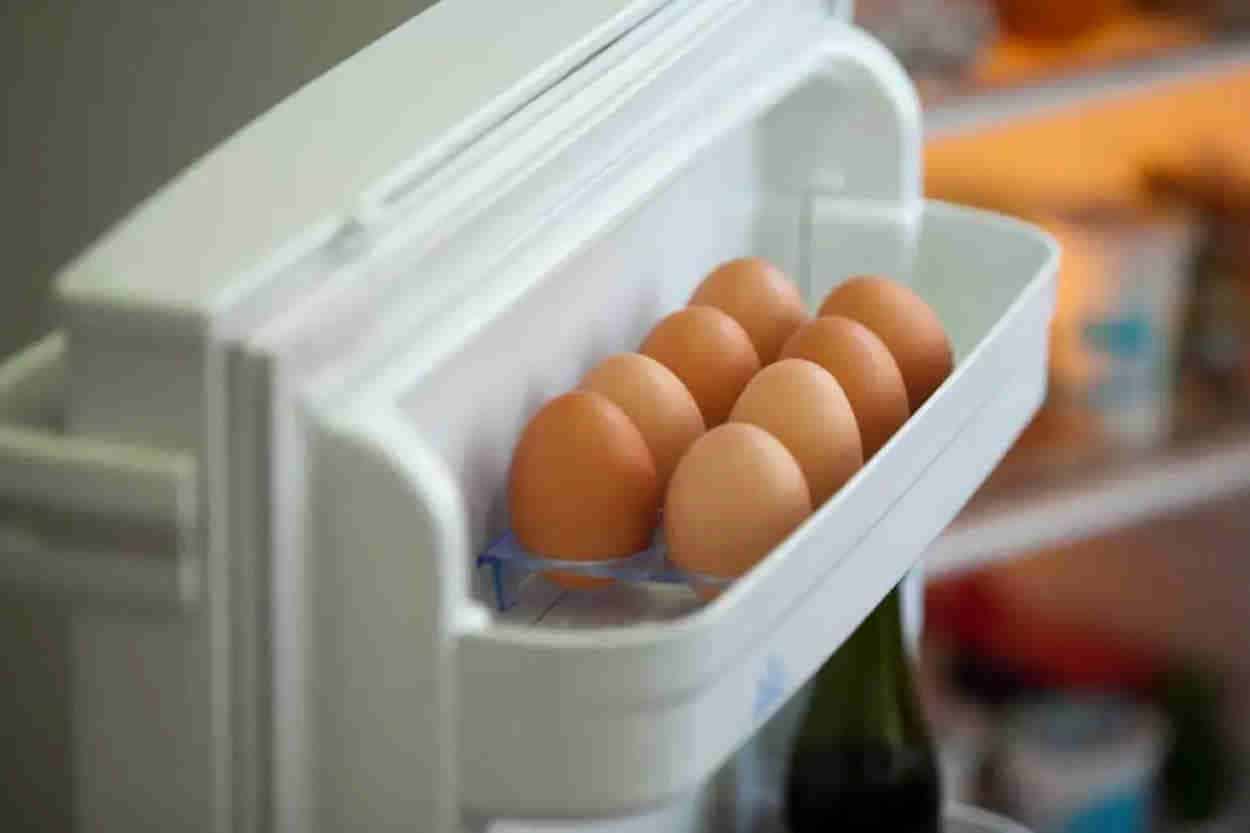
Yes, you can freeze chicken eggs. And according to the FDA, frozen eggs can stay fresh for up to one year. But before getting your hopes up, there are things you should put into consideration.
Factors to Consider Before Freezing Eggs
- Egg Quality: Only consider freezing fresh, high-quality eggs. Eggs approaching their expiry dates may not age well during freezing.
- Shell Integrity: You also want to inspect the shells for any cracks or damage. Cracks compromise the freshness of the eggs because bacteria may have already been introduced to the egg.
- Separating Egg Yolks and Egg Whites: Freezing a whole egg (shell and all) may not be the best because it yields gelatinous eggs. You may want to separate the egg white from the yolk to retain the egg’s original state.
- Using Appropriate Containers: Always use freezer-safe containers. And because eggs expand when frozen, be sure to leave some head space.
- Labeling: To keep track of your egg’s freshness, label your egg containers with the date of freezing.
- Yolk Stability: As I said, the yolk contains fat. And if you know anything about freezing fat, you know that it adopts a gel-like consistency; you don’t want that in your egg. Salt and sugar additions can prevent this.
- Preventing Freezer Burn: Outside their shells, eggs can get freezer burns. To counter this, tightly seal their containers
- Thawing Process: Frozen eggs are supposed to be thawed in a refrigerator and not at room temperature. They are highly nutritious and easy targets for bacteria.
- Frozen Egg Usage: Freezing and thawing eggs do interfere with the texture of the eggs. As such, you want to use them in recipes where texture is not critical, like baking or cooking.
- Shelflife of Frozen Eggs: The FDA says eggs can stay fresh while frozen for up to a year. But once thawed, they degrade fast. So it is critical that you consume them within a couple of days.
Egg Safety and Potential Risks of Freezing
We don’t recommend freezing eggs whole (shell intact) because the final product may become gelatinous. But eliminating the shell exposes the egg to a salmonella invasion. We recommend sealing your egg containers while they freeze. Apart from keeping the salmonella out, freezing helps avoid freezer burns.
Apart from freezer burns, below are the risks that come with freezing eggs:
| Potential Risk of Freezing Eggs | Possible Solution |
| Texture changes of egg whites and yolks | Separate the egg whites from the yolk
Add sugar to the yolk Gently whisk the egg whites |
| Once separated, egg whites and yolks are difficult to recombine after thawing | Gently whisk the egg whites and the yolks before freezing |
| Yolk stability | Add a stabilizer e.g sugar or salt |
| Potential bacterial attacks | Proper handling before freezing
Always use clean, airtight containers Thaw in refrigerator |
| Loss of freshness | Freeze fresh eggs |
| Limited usage due to texture changes | Use the eggs for baking and cooking |
| Contamination during thawing | Thaw in refrigerator |
Recommended Types of Eggs for Freezing
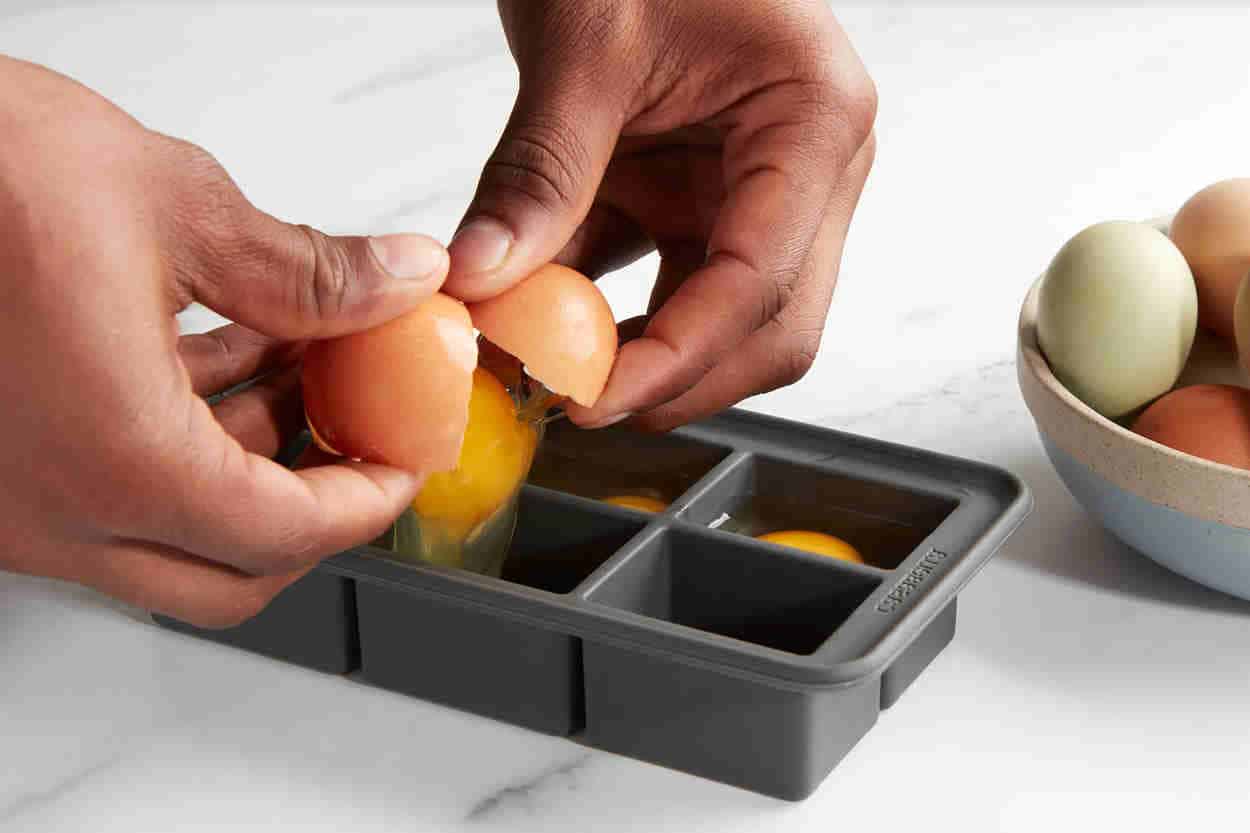
Now, what kinds of eggs are recommended for freezing? Below are the best candidates for egg freezing:
- Fresh Eggs
- Grade A Eggs
- Egg white and Egg yolks, separately
- Stabilized yolks
- Properly stored eggs
Common Misconceptions About Freezing Eggs
We, humans, are a skeptical bunch. And from our skepticism and assumptions, we develop myths. Below are some common myths and misconceptions regarding frozen eggs:
- Frozen Eggs are the Same as Fresh Eggs: False; freezing does alter the texture of eggs.
- Whole Eggs Can Be Frozen With No Issue: False; they end up becoming gelatinous after thawing.
- Eggs Can be Frozen Indefinitely: False; frozen eggs degrade with time. The FDA does not recommend freezing beyond one year.
- Frozen Eggs Can’t be Used in Baking or Cooking: False; frozen eggs may not be suitable for some recipes, but you can use them for baking and cooking.
- Freezing Eggs Kills Bacteria: False; freezing only slows down bacterial growth.
- Eggs Must Be Thawed at Room Temperature: False; room temperature thawing risks introducing Salmonella bacteria. We recommend you thaw your eggs in a refrigerator.
Freezing Methods and Techniques
I guess at this point, we’ve touched on everything except how to freeze the eggs. How about we tackle that?
There are two acceptable techniques for freezing chicken eggs:
- Freezing whole eggs
- Freezing egg whites and yolks separately
- Freezing yolks
Let’s look at each technique individually.
Freezing Whole Eggs
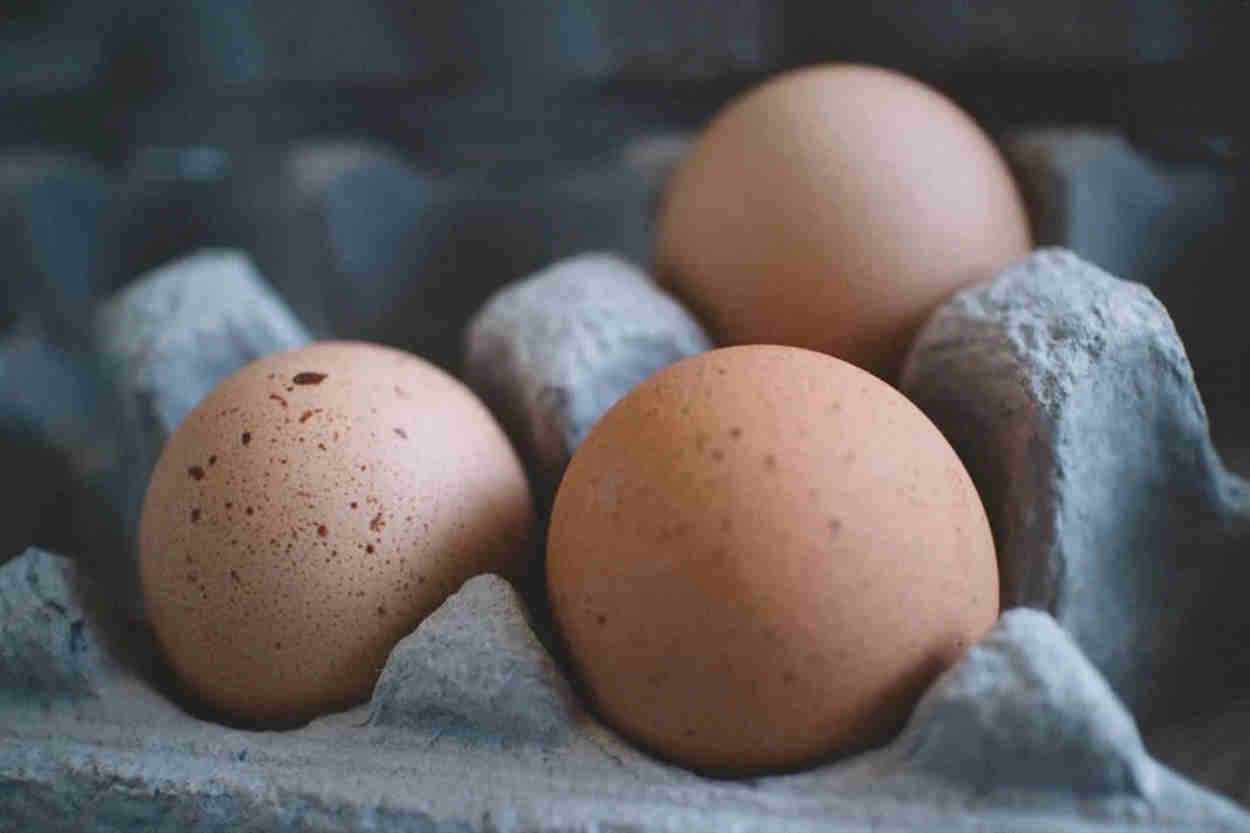
When you freeze egg whites and yolks separately, it can be a challenge to recombine them as soon as they thaw. To dance around this problem, it is recommended that you freeze them whole.
What You Need
- Whisk
- Ice cube trays or silicone muffin trays, or air-tight container
Procedure
- Crack open the eggs into a bowl as you normally would
- Grab the whisk and beat the eggs as you usually do, ensuring that the egg whites and yolks combine.
- If you’re using an ice cube tray or silicone tray, pour the eggs to about two-thirds the capacity of each compartment. If you’re using air-tight containers, fill them to a two-thirds capacity. We do this to allow for expansion during freezing.
- Cover your silicone muffin tray or ice cube tray with plastic wrap. If you chose an air-tight container, place the lid.
- Label the containers, clearly stating the date of freezing.
- Store the containers in your freezer.
Freezing Egg Whites and Yolks Separately

An alternative to freezing eggs whole is to freeze the egg whites and yolks separately. But it’s important to note that it will be difficult to recombine them once they thaw. That said, you’ll need some supplies.
What You Need
- Ice cube tray, silicone tray, or air-tight container
- Salt, sugar, or commercial egg yolk stabilizer
Procedure
- Crack open your eggs and separate the yolks from the egg whites. Below is a video with some helpful techniques that will help you do that.
- Drop the yolks in a separate container or tray compartment.
- Whisk the egg whites gently to break them up before pouring them into a separate container or tray compartment. Only fill to the two-thirds capacity.
- For the tray compartments and containers with egg yolk, add a small amount of salt, sugar, or commercial egg yolk stabilizer. Don’t worry; you won’t feel the salt and sugar in the taste of the eggs.
- If you’re using trays, cover them with plastic wrap. If you’re using air-tight containers, place their lids.
- Label the containers and trays, clearly stating the date of freezing.
- Slip the trays and containers into your freezer.
Final Thoughts
Can you freeze chicken eggs? Of course, you can. Freezing chicken eggs is an effective way of extending the shelf life of your eggs beyond three weeks to one year.
With the techniques we’ve just discussed above, you can save your eggs for a rainy day. But a word of caution: the texture will be a little different once they thaw out. But that doesn’t render them unusable; you can still use them for baking and cooking.

Joseph Hudson has been raising chickens for over 15 years. In 2018, he completed the Agriculture & Natural Resources program at Mt. San Antonio College. He currently raises over 1400 chickens on his 7.5-hectare farm. He keeps sharing his experience on raising healthy and happy chickens on Chicken Scratch The Foundry.
